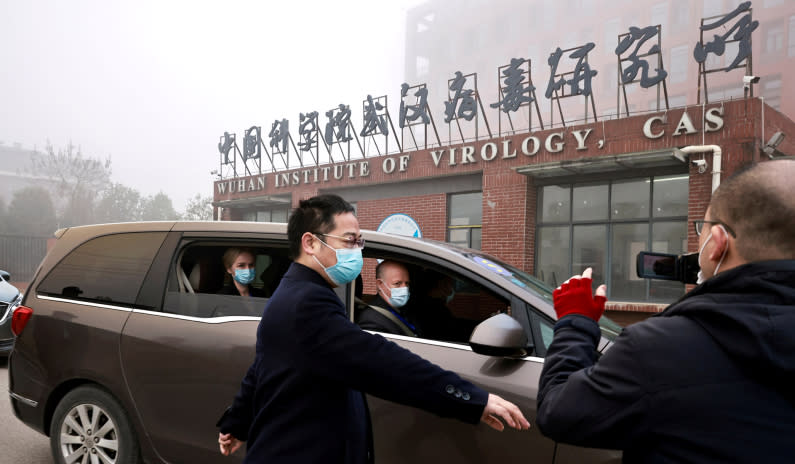WHO Expert Says Chinese Officials Pushed Investigators to Reject Lab-Leak Theory

Peter Ben Embarek, the WHO food safety and animal diseases expert who led the organization’s investigation into the origins of the novel coronavirus, says in a new documentary that Chinese colleagues influenced the presentation of the team’s findings.
In The Virus Mystery, airing Thursday night on Danish television, Ben Embarek says Chinese researchers in the group fought against connecting the origins of the pandemic to the Wuhan Institute of Virology in a report detailing the investigation.
“In the beginning, they didn’t want anything about the lab [in the report], because it was impossible, so there was no need to waste time on that,” Ben Embarek said. “We insisted on including it, because it was part of the whole issue about where the virus originated.”
The team, which included experts from ten countries, released a report in March saying the virus was likely spread from an animal to humans, calling a theory that the virus was released in a lab accident “extremely unlikely.” The researchers said they would not recommend further investigation.
In the new documentary, Ben Embarek says a discussion of whether to include the lab-leak theory in the report at all lasted until two days before the conclusion of the mission.
He said ultimately his Chinese counterpart agreed to discuss the lab-leak theory in the report “on the condition we didn’t recommend any specific studies to further that hypothesis.”
The documentarians asked Ben Embarek whether the report’s use of the phrase “extremely unlikely” was required by the Chinese researchers.
Ben Embarek said “it was the category we chose to put it in at the end, yes.”
However, he noted that was meant to say that the theory was not likely, but not impossible.
He added that one possibility was that a lab employee could have accidentally brought the virus to Wuhan after collecting samples in the field, which would be both a lab-leak theory and a hypothesis of direct infection from a bat, which was described as “likely” in the report.
“A lab employee infected in the field while collecting samples in a bat cave — such a scenario belongs both as a lab-leak hypothesis and as our first hypothesis of direct infection from bat to human. We’ve seen that hypothesis as a likely hypothesis,” Ben Embarek said.
He also suggested in comments during the interview that were not included in the documentary that there could have been “human error,” though the Chinese political system does not allow authorities to admit that.
“It probably means there’s a human error behind such an event, and they’re not very happy to admit that,” Ben Embarek said, the Danish channel TV2 reported on its website.“The whole system focuses a lot on being infallible, and everything must be perfect,” he added. “Somebody could also wish to hide something. Who knows?”
Ben Embarek walked back his comments in a statement to the Washington Post, saying the interview had been mistranslated in English-language media coverage.
A WHO spokesperson similarly said the comment was mistranslated and noted that the interview happened “months ago.”
“There are no new elements nor [a] change of the position [that] all hypothesis are on the table and WHO works with member states on the next step,” the spokesperson said.
Health experts the world over have said that the novel coronavirus likely originated in Wuhan, China in November 2019. Scientists in recent months have questioned whether the virus originated at a live animal market in Wuhan or was the result of a lab accident at one of the city’s two laboratories — the Wuhan Institute of Virology and the Wuhan Centers for Disease Control — that had been studying coronaviruses that originated in bats.
China has argued that the virus did not start within its borders and instead has peddled other theories that the virus may have originated elsewhere.
Beijing has worked hard to control the narrative surrounding the virus, punishing citizen journalists who spoke out against the government’s explanation of events. The government has also controlled all research in the country into the origins of the virus, according to the Associated Press.
Last month, the head of the WHO said it was “premature” to rule out the possibility that the novel coronavirus leaked from a laboratory.
The WHO is “asking actually China to be transparent, open and cooperate, especially on the information, raw data that we asked for at the early days of the pandemic,” director-general Tedros Adhanom Ghebreyesus said at a press conference on July 15.
He said there had been a “premature push” to rule out a lab-leak as the origin of the coronavirus pandemic.
The lab-leak hypothesis has received renewed attention in recent months after President Biden ordered the U.S. intelligence community to assess the likelihood of a leak in May.

